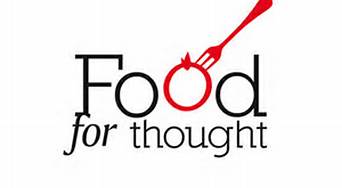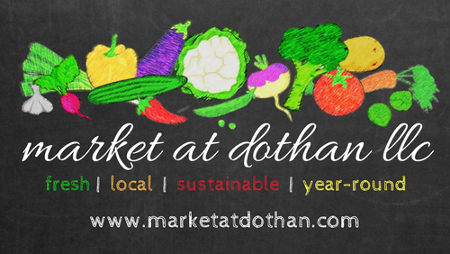The Weblog

Our goal is 100% Customer Satisfaction…comments, questions or concerns always welcome!
www.Facebook.com/MarketAtDothan

July 3, 2021 M@D Newsletter - We're BACK!

MORE WISDOM FROM ELIZABETH
The following is from an Introduction to Organic Farming written by Elizabeth Buttram from Columbus, GA whose work we’ve shared previously. The full article may be viewed by clicking HERE,
What’s Wrong With Chemically or Synthetically Derived Pesticides and Fertilizers?
Pesticide runoff always occurs either below the soil, damaging the very fiber of what makes up the unique network of life occurring under our shoes, or downhill into our streams and rivers creating a domino effect of ecological disaster. It kills insects and bugs occurring within the soil, as well as downhill/downstream. It isn’t just the insects that suffer though, it contaminates water sources, hurting an entire complex ecosystem of fish, reptiles, amphibians, birds, and mammals.

So, pesticides poison the ecosystem while the fertilizers do quite the opposite, they promote unnatural blooms of plant species (Yes! Fertilizer runoff likewise happens). Certain plants will thrive, depending on the fertilizer, while others will suffer as the thriving plants out-compete them, and the ecosystem becomes unbalanced.
Often times, algae blooms occur due to fertilizer runoff. Algae bloom can be beneficial, but when unnaturally accelerated and given an unfair advantage due to fertilizer uptake, it smothers out its natural environment, uptaking vast amounts of oxygen from the water and making a favorable environment for wildlife species suddenly hostile and unsuitable. It leads to these species dying off as happens with pesticide runoff anyway. It’s a continual negative feedback loop. The ecological poisoning ensured with conventional farming using harsh pesticides and fertilizers isn’t the only negative side effect of this practice. It also makes it more difficult for organic farmers to do their work. Why?
To explain, I’ll give an example from an organic farm I worked on called Paradise Farms.
Paradise Farms did everything I listed above to be considered organic, and jumped through the many hoops and financial burdens of obtaining an organic certification (yet another thing making it difficult for organic farmers). Organic farmers are generally lower down on the financial scale because of previously covered reasons — the costs of obtaining an organic certification are ridiculous.
Paradise Farms was surrounded by other farms, and none of them were organic. This meant that all the pests that were deterred from the surrounding farms employing ecological warfare to keep them off their crops, came to our farm. Our ecological-based pesticides, while still an active deterrent, were heaven compared to the harsh chemicals they had adapted to. The negative consequences of this are obvious.
Why do it? Why organic farm?
Organic farming stems from a love for the environment and the natural world. Organic farmers’ ultimate mission emphasizes the use of our renewable resources in order to conserve our soils and waters for the bettered future of humanity and our entire world. Regardless of the challenges organic farmers face due to these practices, and the domino effect conventional farming operations have on organic farming, it’s worth it to know they’re simultaneously protecting the environment and providing for people.
The author hopes to resume her Peace Corps work within the next few months after her previous assignment was cut short due to Covid.
GROWER & MARKET NOTES
D’S JELLIES: I have been waiting patiently for all of my peppers that go into D’s Hot Pepper Jelly to turn red. The red peppers are what gives my jelly it’s red color. This weekend I hope to begin production of my best seller, D’s Hot Pepper Jelly. I will begin listing the jelly soon. I have new Jelly Jars that were shipped to me from New York, so all of my Jellies will be in new jars with white lids. Thank you for your patience and for being a loyal customer. Dianne Herring

We thank you for your interest and support of our efforts to bring you the healthiest, the freshest and the most delicious locally-produced foods possible!